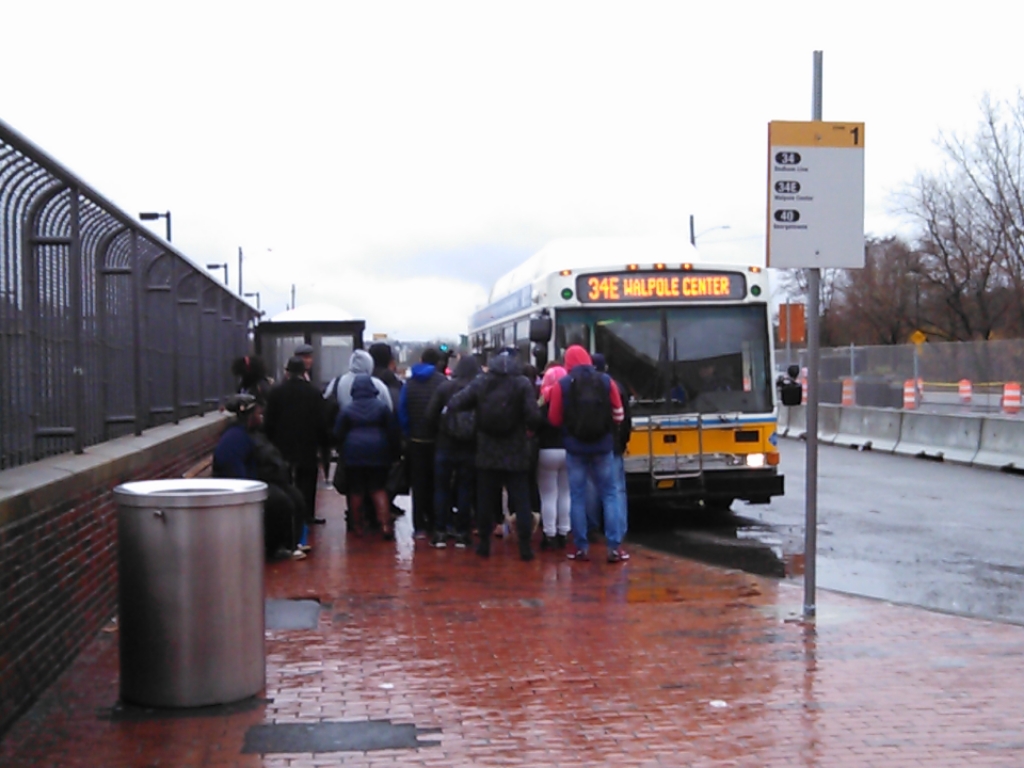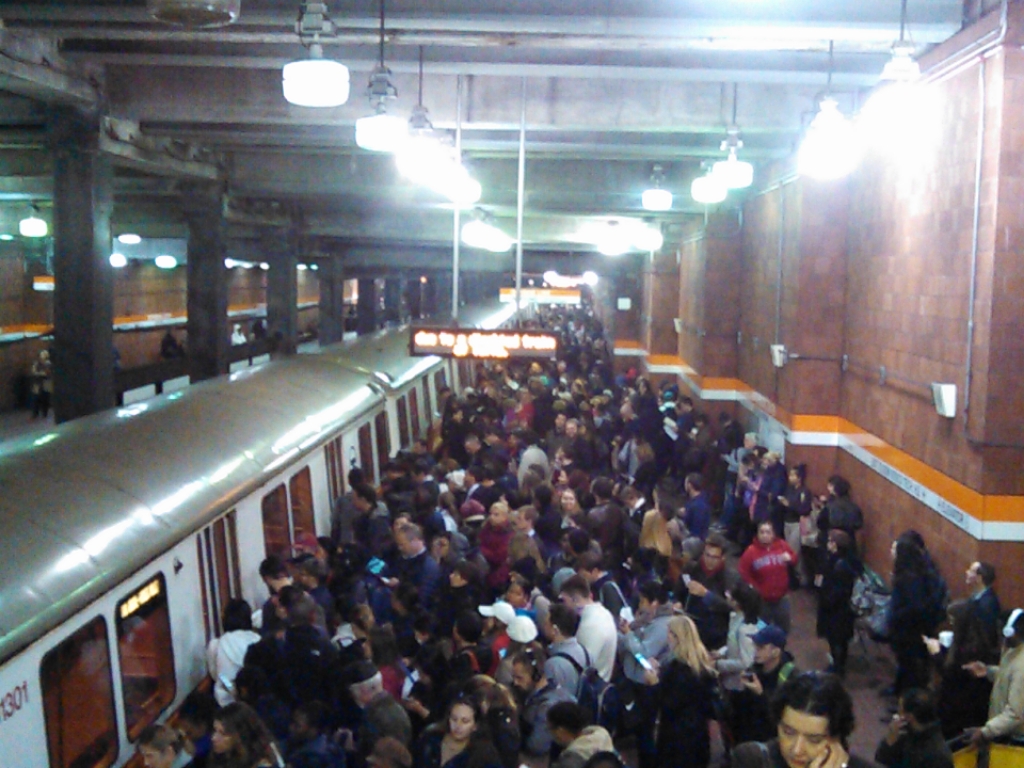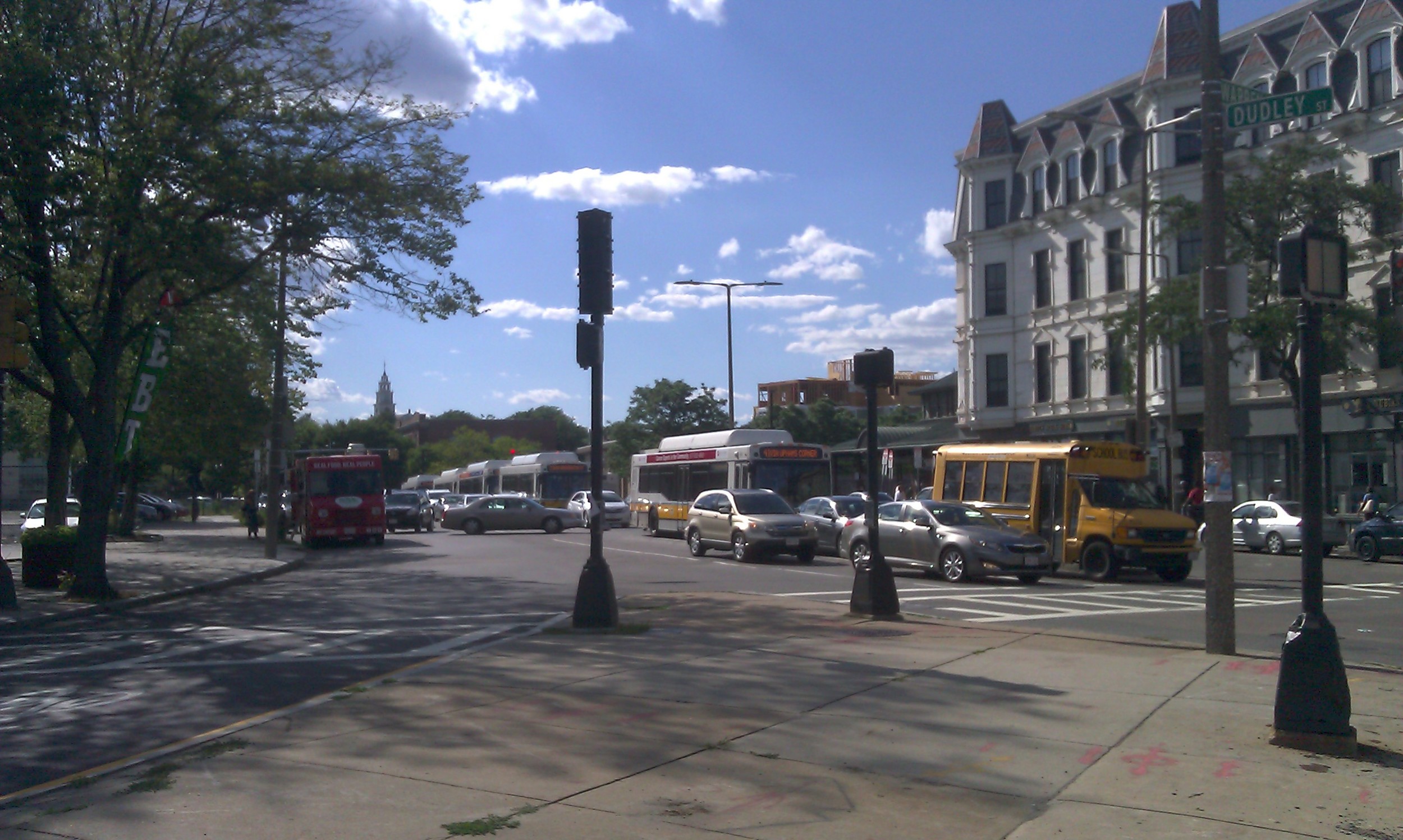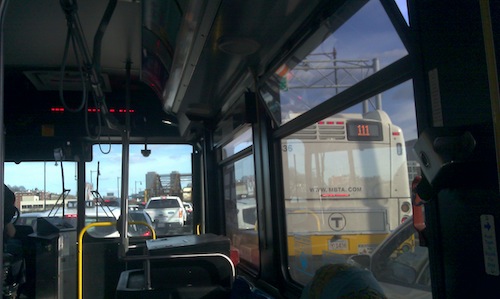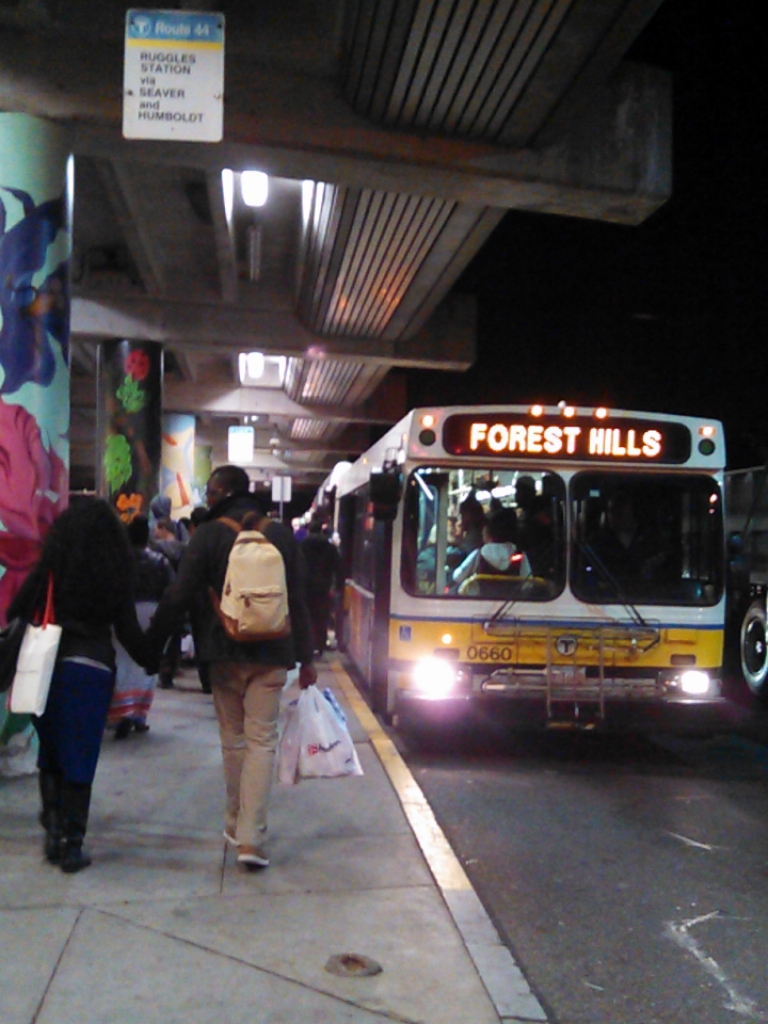The MBTA fare increase proposals (presentation, summary) are unnecessary and not even helpful in closing the budget gap. We summarized all the feedback we've received and proposed alternatives to increase ridership and revenue and reduce operating costs.
THE FACTS ON FARES & SERVICE
MBTA fares have more than doubled since 2000, far outpacing inflation and exceeding even the increase in housing prices. Meanwhile the state gas tax has increased only 3 cents and no longer supports the cost of road maintenance, but MBTA riders are being asked to pay their own way.
Commuter Rail fares and parking fees are some of the highest in the nation despite very infrequent service. Record rents and declining wages are forcing large numbers of people out of the city, to places where Commuter Rail is the only transit but is unaffordable. Low ridership has been cited as a motivation for further service cuts, yet when a day trip costs $84 for a family of four, the Commuter Rail is not living up to its potential as an effective regional transportation network.
Ridership is up over 20 percent on all major lines as the city’s population has increased 10 percent in ten years. Trains and buses are slower, more crowded and less reliable than ever. All major rail and bus lines operate over capacity every day and the system does not effectively serve many trips. Failing to increase service by 20 percent is essentially a service reduction. Riders cannot be expected to pay even more without major upgrades such as increased capacity, faster service and new lines — give us a system worth paying for.
Higher fares turn T riders into car drivers and make traffic congestion even worse, unless accompanied by major service improvements or a gas tax increase to make drivingless appealing. With gas prices approaching 11-year lows, commuters see transit fares rising and service quality declining and make the obvious choice. Rather than continue the death spiral of service cuts (yes, eliminating late night service = service cuts) and fare increases until transit is no longer effective and streets are completely gridlocked, now is the time to reverse course and invest heavily in public transportation, including maintaining or lowering fares.
No major investments have been made to the system’s core since the 1980s and we are now paying the price as the MBTA slowly falls apart. The MBTA has made significant progress on reforms but the promised revenue in “reform before revenue” remains elusive. No efficiencies will ever fill the $7 Billion budget gap -- and that's just to reliably run what we have now, without desperately needed upgrades. If we don’t start investing now, the system will only get worse, and it will only cost more when we eventually have no choice. Riders are not responsible for chronic underinvestment and cannot be asked to shoulder the burden of ever increasing debt service payments.
Soaring housing costs and declining wages are forcing many people to move to places with poor transit access. We have repeatedly cut service and raised fares on these "low ridership" services, while ignoring others with great potential.
Governor Baker said there should be no new taxes or fees — apparently not including T riders. The agency’s 4% cost growth is in line with the Governor’s call for a 5% increase in state spending elsewhere. So why is the MBTA Control Board subjecting T riders to a higher standard?
Good transit provides many benefits to all of society — even those who never use it. Public transportation supports dense, vibrant communities where everyone has access to basic needs and the freedom to move around the region. Last winter showed us just how important the MBTA is to the entire state’s economy: without the T, all of our favorite stores, restaurants, institutions and entertainment venues would be unable to attract sufficient customers and employees. Imagine a transit system with the resources to run excellent service every day and make people actually want to use it.
Traffic congestion on our streets and highways is worse than ever because of our failure to upgrade and expand the transit network. Boston EMS ambulance response times have increased 16 percent since 2009, the Boston Fire Department takes one minute longer to respond to calls, and buses spend much of their trip stuck in traffic. Only by expanding transit so it is useful for more people will we create space for essential services and emergency vehicles. Fare increases only put more cars on the road.
Over 100 years after the first subway construction in Boston, the region’s poorest, most underrepresented neighborhoods still lack rapid transit access. Communities such as Chelsea, Roxbury and Mattapan have the longest trip times (often slower than walking) and least reliable bus service. These riders are also most heavily impacted by rising fares, often cutting back on groceries or skipping social events due to the cost of transportation. Special attention should be focused on bringing fast, frequent and more affordable transit to our most vulnerable riders.
Riders are doing their part to support vibrant communities, reduce traffic and address climate change. We should reward - not punish - those who use the MBTA by maintaining or lowering fares across the system and investing in faster and more effective service. Our transit network is a valuable public service, not a profitable business, and it's time we started treating it like one.
ALTERNATIVES
Many simple changes could improve the user experience and help alleviate capacity constraints until service can be expanded. The T should experiment with several options in an effort to upgrade service and reallocate inefficiently used resources, and as alternatives to (or mitigation for) a fare increase. In other words, what improvements are we getting for the higher fees?
Instead of a single transfer, allow unlimited transfers within 2 hours on bus, subway and Commuter Rail, to permit trips through downtown and between non-downtown points. Currently it is impossible to go from Roxbury to Chelsea, Everett to Brighton Center, or Roslindale to Brookline (just a few examples) without two fares or a very long trip with a transfer downtown. Removing the barrier would allow riders to make more efficient trips and access more jobs while increasing ridership (and revenue) and reducing congestion in the downtown transfer stations. An unlimited transfer — think of it as a 2-hour unlimited pass — is in effect on transit systems across the country such as Portland, Minneapolis and San Francisco.
Implement all-door boarding on buses and trolleys. Pass users could board at any door and special fare inspectors would conduct occasional inspections, issuing a fine to riders who haven’t paid. Up to 30 percent of Green Line and bus travel time is spent sitting at stops while riders line up in the cold waiting to tap their card. Keeping buses and trolleys moving means faster service, more frequent service, more evenly spaced trains/buses, reduced fare evasion and lower operating costs. All-door boarding is now standard practice on nearly all North American light rail lines and San Francisco has expanded it to all buses.
Reduce Commuter Rail fares on off-peak and weekend trains. As record numbers of urban dwellers leave the region’s core to escape soaring rents, the Commuter Rail has the potential to dramatically improve their quality of life. Yet commuter Rail fares are too expensive, even off-peak trains operate with hundreds of empty seats that could offer a fast new service to riders of all income levels. Thousands of riders endure long trips on crowded buses or limit their economic and social opportunities because of transportation costs. Many more drive choose driving over the high train fare, adding thousands more cars to our streets every day.
Extend Zone 1A (subway fare) to include all stations within 12 miles of downtown Boston, roughly the distance to Braintree, Waltham or Lynn, or anywhere within Route 128. It is expensive to provide very frequent service on slow, crowded buses to places like Hyde Park, Roslindale, Waltham and Lynn while train cars run empty.
Heavily discount Commuter Rail fares during off-peak periods and on weekends. Chicago and Philadelphia have seen large ridership increases with their $8 unlimited weekend (Chicago) and $12 unlimited (Philadelphia) off-peak passes.
Integrate fares between subway, bus and Commuter Rail so that riders can pay with a CharlieCard. Issue transfers valid between the Commuter Rail and a subway or bus line. Add a credit card payment option.
Coordinate bus connections at terminals, stations and transfer locations. Improve scheduling of connecting services and hold buses and trains for close connections during times of less frequent service.
Upgrade bus stops, stations and terminals to improve service quality and comfort, allow more efficient bus and passenger circulation and increase ridership at very low cost.
Implement transit priority measures on city streets for faster, more reliable and less costly bus and trolley service. Faster service and increased on-time performance were among the top requests from participants in the GoBoston 2030 transportation planning process. Many simple signal modifications and street design changes would help meet these goals.
If fares do increase, offer free and discounted passes for low-income riders through social service programs such as SNAP, WIC and MassHealth. Expand student pass programs through cities and university groups. However, the availability of low-income discounts must not serve as a justification for fare increases.
WHAT CAN I DO?
Speak up at a public meeting, submit comments and contact your representatives. Your city and state elected officials need to hear from you; remind them that the MBTA benefits everyone in the state and we must make up for our past mistakes. Otherwise the death spiral of high fares and poor service will continue -- more breakdown, delays and late trains/buses -- until our once-proud transit network falls apart for good.


